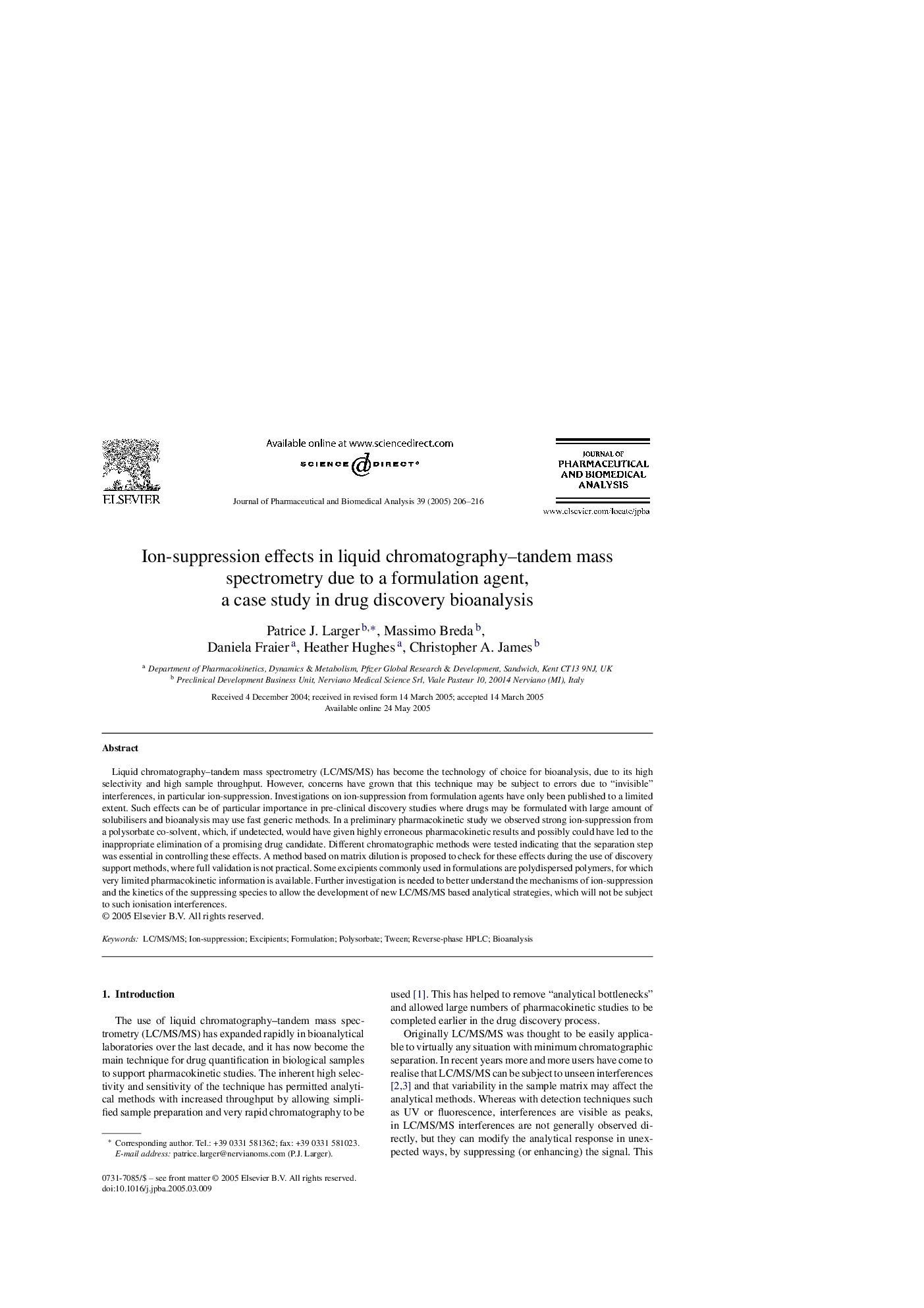| Article ID | Journal | Published Year | Pages | File Type |
|---|---|---|---|---|
| 9754506 | Journal of Pharmaceutical and Biomedical Analysis | 2005 | 11 Pages |
Abstract
Liquid chromatography-tandem mass spectrometry (LC/MS/MS) has become the technology of choice for bioanalysis, due to its high selectivity and high sample throughput. However, concerns have grown that this technique may be subject to errors due to “invisible” interferences, in particular ion-suppression. Investigations on ion-suppression from formulation agents have only been published to a limited extent. Such effects can be of particular importance in pre-clinical discovery studies where drugs may be formulated with large amount of solubilisers and bioanalysis may use fast generic methods. In a preliminary pharmacokinetic study we observed strong ion-suppression from a polysorbate co-solvent, which, if undetected, would have given highly erroneous pharmacokinetic results and possibly could have led to the inappropriate elimination of a promising drug candidate. Different chromatographic methods were tested indicating that the separation step was essential in controlling these effects. A method based on matrix dilution is proposed to check for these effects during the use of discovery support methods, where full validation is not practical. Some excipients commonly used in formulations are polydispersed polymers, for which very limited pharmacokinetic information is available. Further investigation is needed to better understand the mechanisms of ion-suppression and the kinetics of the suppressing species to allow the development of new LC/MS/MS based analytical strategies, which will not be subject to such ionisation interferences.
Related Topics
Physical Sciences and Engineering
Chemistry
Analytical Chemistry
Authors
Patrice J. Larger, Massimo Breda, Daniela Fraier, Heather Hughes, Christopher A. James,
